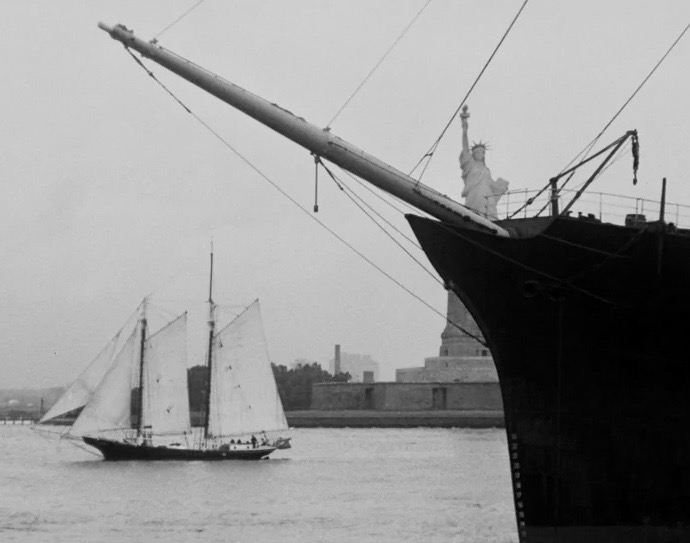
Enjoy a Little Holiday Interlude With Salty Phrases — Part 2
Just after Thanksgiving, we shared the origins of some Salty Phrases — sayings that have been repeated by sailors, and sometimes landlubbers, for generations. Many times we wonder where these often-unusual sayings originated. Well, wonder no more, because below we share Part 2 of our Salty Phrases list, compiled by Latitude editor John Riise (JR), “back in the old days.” (Where did that phrase originate?)

Even Keel and Listless: We mention these together because, while they describe a similar condition, they have opposite meanings, both afloat and ashore. A ship on an “even keel” is calm and steady, and that’s what it means in everyday language. However, a ship on an even keel is often that way because there is no wind. No wind — no list. And life aboard is boring when the ship is listless. As it is ashore.
Flying Colors: If you pass a test with flying colors, you have done about as well as you could have. It was the same in the days of fighting sail. A ship entering harbor with “flying colours” — meaning with most of its flags flying — indicated it had been victorious in battle.
Feeling Blue: Today’s phrase for feeling sad came from an old custom among sailors — if a ship had lost a captain or other crew members, she would often enter port flying blue flags.
Hard and Fast (and hard up): A hard-and-fast rule means one that is inflexible. In the old days, hard and fast meant a ship that had run aground and couldn’t get free, which was also a pretty inflexible situation. Hard up, derived from the same predicament, means in a fix with no obvious way to get out of it.
Hodgepodge: The original meaning of hodgepodge was literally “stew pot,” and everyone knows there’s a little bit of everything in stew. When the term made its way aboard sailing ships, it came to mean the equal division of cargo and/or property damaged when two ships collided and both bore equal responsibility.
Hunky Dory: There was, at one time, a street in Yokohama, Japan, called Honki-Dori, which catered to the pleasures of sailors. Enough said.
Jury Rig (often incorrectly written and pronounced “jerry rig”): A jury rig is a make-do repair until a complete fix can be made. It derives from the practice of replacing a mast or spar that has broken or been lost overboard with whatever materials one can find. The word may derive from “injury,” but more likely comes from the Old French ajurie — “help” or “relief.”
Keep Your Shirt On: Shirts were often in short supply in the old days, and a typical sailor might only have the one on his back. If he was going into a fight — with the enemy or another sailor — he would remove his shirt so as not to mess it up. So “Keep your shirt on” came to mean “Calm down, I don’t want to fight you.” Today, ashore, it means much the same thing.
Long shot: In the old days, cannons weren’t very accurate at long range. So a long shot was always a gamble with only a slim chance of success — as it is today in common usage.
Loose Cannon: Today it means crazy person. In the days of fighting sail, it meant the craziness that happened when a two-ton cannon broke loose of its lashings and started rolling back and forth across the deck.
Stay tuned for Salty Phrases Part 3. And if you missed Part 1, you can find it here.

Hey how about
“Freeze the balls off a brass monkey.”
from the age of fighting sail
brass monkey was a ring used as a storage device for iron cannonballs. in cold weather the brass would shrink and the iron shot would roll off – freeze the balls off